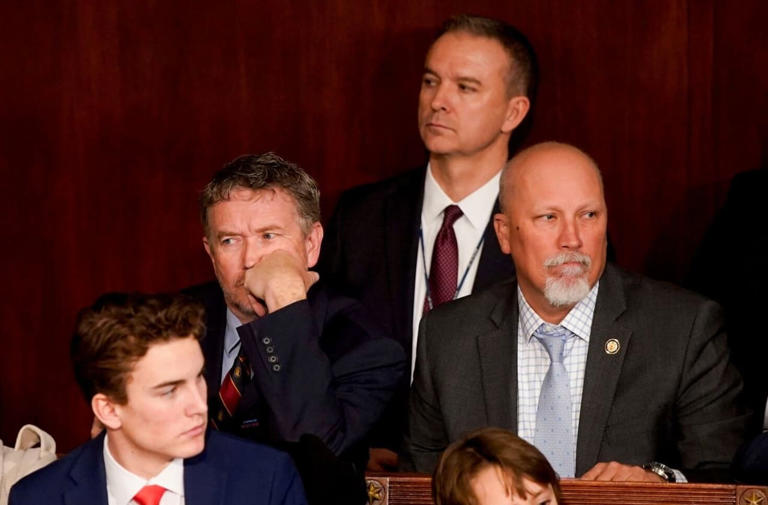“Johnson Claims Speaker Victory, but GOP’s Margin for Mistakes Grows Slim”
The new Republican Congress stormed into Washington on Friday, eager to kickstart a new era of governance and fulfill their fresh electoral mandate. However, things weren’t as smooth as expected, with a dramatic and unexpected twist during the speaker vote, signaling the ongoing struggles for a party with a razor-thin majority in the House. Mike Johnson, the Louisiana congressman, clinched the speaker’s gavel on the first ballot as the newly elected House of Representatives met. While it seemed like a victory for unity and a positive sign for the party’s ability to push forward its agenda, the process was far from flawless.
Several conservative members initially withheld their votes during the roll call, and three Republicans cast protest votes for other candidates. This created an intense round of negotiations between Johnson’s allies and the dissenters, with a late intervention from President-elect Donald Trump. Within the hour, two of the three holdouts—Reps. Ralph Norman and Keith Self—flipped their votes, giving Johnson the majority and the speakership. However, Rep. Thomas Massie remained opposed. While Johnson had managed to secure the votes, many in the GOP saw this brief rebellion as a warning sign from the House Freedom Caucus, signaling future challenges for the party.
Rep. Tony Gonzales (R-Texas) summed it up, tweeting that it’s hard to “save a country” when Republicans struggle to work together. The vote highlighted the first test for Trump’s incoming administration and the Republican Congress. With Trump’s policy priorities and execution still uncertain, it’s clear that the GOP’s narrow majority—just 219 seats in the 435-seat House—leaves little room for error. A single defection on party-line votes, like Friday’s, could jeopardize crucial legislation. Even near-unanimity among Republicans won’t be enough; unity is a must.
While the mood in the party is more optimistic than the last time they held the majority—when Kevin McCarthy won the speakership after a marathon, multi-ballot ordeal—the math is tougher for Johnson. His strategy has largely been to align closely with Trump, who made calls and posted on social media to drum up support for the speaker. While Trump is said to have some doubts about Johnson’s toughness, his influence has been critical in securing Johnson’s victory.
Looking ahead, the big question is whether Trump and Johnson can maintain unity in their party as they pursue what they’ve promised will be an ambitious legislative agenda. Despite the GOP’s control of the House, Democrats gained seats and held onto crucial Senate races, signaling that the GOP’s mandate may not be as strong as they claim. Democrats argue that they will hold significant leverage in future policymaking, with Rep. Pete Aguilar (D-California) stating that without Democratic support, Congress won’t be able to function effectively.
This dynamic is echoed in the Senate, where the GOP holds a slim majority of 53-47. While Republicans can pass funding bills and approve nominations, they will need 60 votes for other legislation. Senate Majority Leader John Thune has pledged to uphold the 60-vote filibuster threshold, potentially clashing with Trump’s past efforts to eliminate it.
Though Johnson passed an early test of his leadership, many in his party view his election less as a vote of confidence in him and more as an endorsement of Trump’s agenda. Some conservatives, including Norman, acknowledged their reservations about Johnson’s record but supported him to ensure the timely certification of Trump’s electors.
This situation echoes the challenges McCarthy faced earlier, as his leadership was undermined by procedural concessions and rebellious members like Matt Gaetz, who ultimately forced McCarthy out. Fortunately for Johnson, Gaetz is no longer in Congress, and the new House rules make it harder to oust a speaker. However, Johnson’s ability to keep the party united will be tested, particularly as he faces funding deadlines in March and the looming need to raise the debt ceiling.
In the end, winning the speakership was just the beginning for Johnson, and his real challenges are just beginning.

